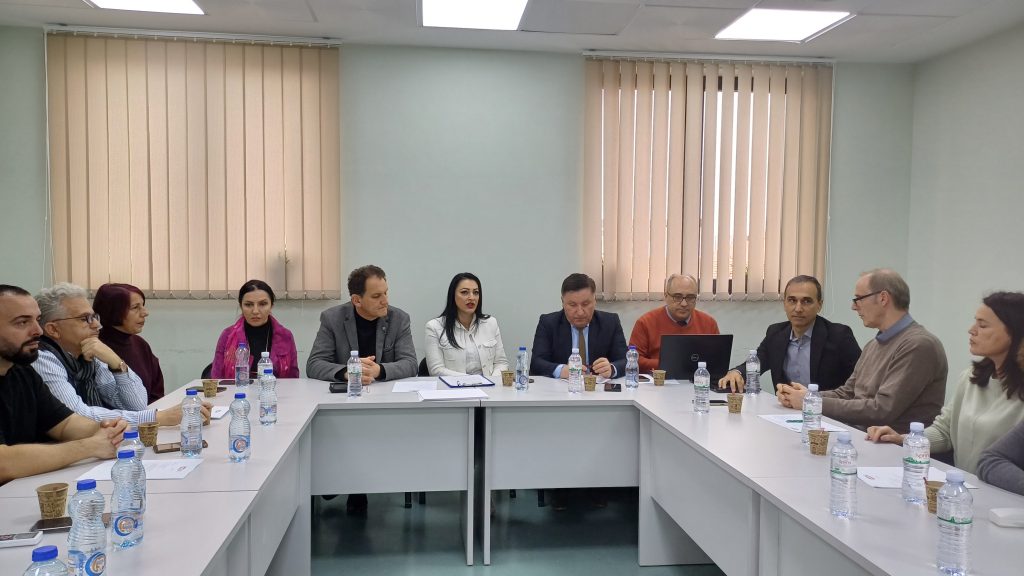The two officially designated demonstration sites for qualitative, accessible and integrated healthcare services, Gjakova and Lipjan, met to elaborate on tested models and exchange practices. The session, hosted at Gjakova Main Family Medicine Centre, the newest demonstration site of the AQH Project, marks a significant step towards rolling out collaboration and sustainability approaches that improve healthcare delivery across the country.
In her opening statement, the Director of Municipal Health and Social Welfare Services of Gjakova, Adelina Shehu Kola, emphasized the importance of collective effort in transforming healthcare services. “Together, we work to enhance the quality of healthcare for our citizens, from project idea and execution to human resources maximization, driven by collaborative leadership,” she said.
The team from Lipjan primary healthcare level shared as a roadmap for Gjakova their experience, lessons learned, and challenges over almost eight years of working towards change. “Our focus has been on actively involving all relevant stakeholders, from municipal leadership to civil society organizations, to ensure integrated care that combines health and social services. By fostering ownership at every level and enhancing the role of the Centre for Social Work, we’ve built a sustainable model that aligns community objectives with healthcare advancements,” said Shkelzen Hajdini, Director of Municipal Health and Social Welfare Services of Lipjan.
Participants, representing Gjakova’s primary and secondary healthcare levels underscored the importance of streamlined collaboration between both levels.



